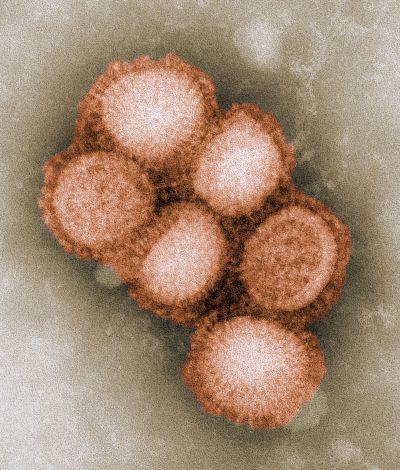Netherlands reports mutant swine flu death

Your support helps us to tell the story
From reproductive rights to climate change to Big Tech, The Independent is on the ground when the story is developing. Whether it's investigating the financials of Elon Musk's pro-Trump PAC or producing our latest documentary, 'The A Word', which shines a light on the American women fighting for reproductive rights, we know how important it is to parse out the facts from the messaging.
At such a critical moment in US history, we need reporters on the ground. Your donation allows us to keep sending journalists to speak to both sides of the story.
The Independent is trusted by Americans across the entire political spectrum. And unlike many other quality news outlets, we choose not to lock Americans out of our reporting and analysis with paywalls. We believe quality journalism should be available to everyone, paid for by those who can afford it.
Your support makes all the difference.Dutch authorities said Thursday a patient infected by a mutant strain of the swine flu virus had died, but added that this was not the cause of death.
Harald Wychgel, spokesman for the Dutch Institute for Health and the Environment, told AFP that there had been a "minor change in the virus to make it resistant to Tamiflu," a key treatment for influenza.
"He died not because the virus was resistant but because he was seriously ill and caught the Mexican (swine) flu," Wychgel said.
The man, whose age had not been given, died Sunday in the northern city of Groningen, local health official Hans Coenraads said.
"We have carried out tests on the patient's associates to see if the mutation had spread but we found no such indications", he said.
Reports said that two more patients in the Netherlands had shown resistance to Tamiflu.
It is the fifth fatal case of mutated A(H1N1) flu in Europe, after two in France and two in Norway.
The World Health Organisation said last month that mutations had been observed in Brazil, China, Japan, Mexico, where the swine flu pandemic began, Ukraine, and the United States, as early as April.
Italy also reported a non-fatal case on Monday.
"The mutations appear to occur sporadically and spontaneously. To date, no links between the small number of patients infected with the mutated virus have been found and the mutation does not appear to spread," a WHO statement said on November 20.
The WHO also underlined that there was no evidence of more infections or more deaths as a result, while the mutated virus detected up to that point remained sensitive to antiviral drugs used to treat severe flu, oseltamivir (Tamiflu) and zanamivir (Relenza).
Scientists fear that mutations in flu viruses could cause more virulent and deadly pandemic flu. The global health watchdog reiterated a call for close monitoring.
"Although further investigation is under way, no evidence currently suggests that these mutations are leading to an unusual increase in the number of H1N1 infections or a greater number of severe or fatal cases," it added.
axr/mb/cw
Join our commenting forum
Join thought-provoking conversations, follow other Independent readers and see their replies
Comments